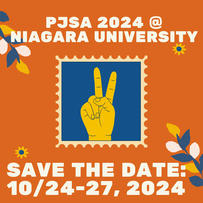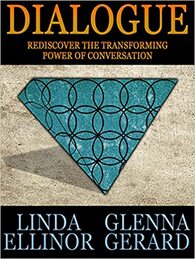 Explore the UN Peacebuilding Architecture Review, from the Global Partnership for the Prevention of Armed Conflict, transitioning from local construction sites to the global policy-making corridors of the United Nations. This review process, aimed at preventing conflict and fostering recovery, is managed by the Peacebuilding Commission, Fund, and Support Office, working together like a coordinated construction team. It offers local peacebuilders the opportunity to influence global policies, ensuring they address community needs and promote sustainable peace. Active participation enables local actors to drive meaningful changes, gain valuable skills, and access important opportunities. Read the blog post below and learn more here.
0 Comments
 Lydia Smith, NCDD member and friend, leads the Emory Conversation Project at the Barkley Forum for Debate, Deliberation, and Dialogue at Emory University, helping students improve their skills in discussing tough topics together. Her initiative focuses on developing students' collaborative discussion skills to tackle challenging topics, inspired by her debate background. After attending Interactivity Foundation’s Summer Coach Training, Lydia integrated more interactive activities into ECP, using the Collaborative Discussion Toolkit. This toolkit, organized in modules, enhances students' critical and civic collaboration skills, fostering confidence in dialogue facilitation. The program's success led to its expansion across campus, earning accreditation and institutional support for broader integration, highlighting its transformative impact on students' communication abilities and campus dialogue culture. Read the blog post below and learn more here.  In a recent conversation, Rosa Zubizarreta from the Deliberative Democracy Digest, and Oliver Escobar emphasize the critical but often overlooked role of group facilitation in democratic innovations. Escobar argues that without facilitators, structural inequalities and power dynamics go unchallenged, making facilitation essential for egalitarian and respectful interactions. They highlight the invisibility of facilitation in contemporary society and advocate for intentional design of participatory spaces to ensure fairness and empathy, drawing on both Indigenous practices and modern social sciences. Read more in the blog post below and check out the conversation here. NCDD member and former board chair, Martín Carcasson’s has shared his working paper, "Imagining the Robust Deliberative City," which highlights the need for meaningful public discourse in an era of eroding trust and rampant misinformation. He distinguishes between reactive public opinion and thoughtful public judgment, advocating for the latter. Carcasson argues that fostering robust public judgment is best achieved at the local level, where cities and counties can model democratic engagement through inclusive, collaborative discussions. He provides a road-map for local governments to build capacity for democratic engagement, emphasizing the creation of deliberative spaces, inclusivity, citizen education, and trust-building. Read more in the blog post below and find the full working paper here. Roshan Bliss has been promoted to Director of Democracy Innovations here at the National Coalition for Dialogue & Deliberation! In his new role, he will lead the Democracy TV project, which aims to showcase the power of deliberative democracy on television by featuring diverse Americans collaborating on community issues. Roshan, based in Denver, is a certified mediator with over a decade of experience and was instrumental in launching Denver’s first participatory budgeting process. Please join us in wishing him congratulations! Learn more about Roshan and his work in the blog post below.
 The Share Our Organization Toolkit, co-created by NCDD members, Essential Partners, and the 92NY’s Belfer Center, helps organizations leverage diverse perspectives and experiences to foster collaboration, innovation, and belonging. Using Essential Partners’ Reflective Structured Dialogue (RSD) framework, it offers a 5-step process to build trust, navigate difficult discussions, and support diversity and inclusion initiatives. The toolkit aims to enhance employee engagement and organizational development by encouraging healthy communication and resilience. Learn more in the blog post below and read the article here.  The Peace & Justice Studies Association (PJSA) 2024 conference, themed "We Are All Connected: Fostering Intersectionality and Solidarity," will take place from October 24-27 in New York. The conference, a collaboration between PJSA and the Justice House program at Niagara University, aims to create a learning community centered on pursuing justice, empowering students, and fostering collaboration with advocacy and peace organizations. Proposal submissions due May 1, with early bird registration available until July 15, 2024. Learn more below and on PJSA 2024 site here. NCDD Network Partner, NAFCM - the National Association for Community Mediation and The JAMS Foundation announced the 2024-2026 funding focus on violence intervention. Funding will support 5 communities with up to $30,000 over two years and executive support, to assist local communities in developing comprehensive approaches to preventing and responding to hate-driven violence, strengthen existing violence prevention ecosystems, and more. Proposals are due February 19, 2024. Learn more on NAFCM's site here.
Thank you to D.G. Mawn, NAFCM's President, for sharing this announcement with the NCDD network! NCDD is excited to share the below Fellowship opportunity from Mediators Beyond Borders International! Read on for more information and how to apply. Mediators Beyond Borders International (MBBI) is an impact organization that builds local skills for peace and promotes mediation worldwide. We bring together experienced volunteer mediators to improve conflict resolution capacity and support alternative approaches to expressing, negotiating, and resolving interpersonal, political, economic, social, ethnic, and religious differences.
Position Overview: MBBI has been engaged in training peacebuilders, supporting and facilitating a variety of local and national peace processes in regions around the world. We have done this with nimble adaptations to conditions created by the pandemic and remained focused on inclusion and adaptation. One of these processes is focused on creating space for the different factions to jointly develop a platform that can be used as part of the larger national peace process and this effort is led by MBBI’s SE Asian Representative Shadia Marhaban. MBBI is looking for a peace practitioner interested in capturing the process, learning from this initiative, and assisting in possible next steps.  Don't forget to register for the free webinar introducing a model for Bohm-inspired Dialogue on Friday, June 3rd. This 90-minute event will be held at 1 PM EDT/10 AM PDT. Register today! During this webinar, you will learn how the co-authors, Linda Ellinor & Glenna Gerard, of Dialogue: Rediscover the Transforming Power of Conversation (1998, John Wiley & Sons), one of the most comprehensive books based on the work of the late David Bohm (1917 - 1992), came to develop their model of Bohm-inspired Dialogue. Their book has now been translated into 5 languages and is available as a down-loadable e-book. You will learn or experience the following:
Dialogue Application, Design Facilitation This session is FREE and open to all interested in learning more about this powerful approach to dialogue. Register today to join us! |
Categories
All
|
Follow Us
ABOUT NCDD
NCDD is a community and coalition of individuals and organizations who bring people together to discuss, decide and collaborate on today's toughest issues.
© The National Coalition For Dialogue And Deliberation, Inc. All rights reserved.
© The National Coalition For Dialogue And Deliberation, Inc. All rights reserved.



 RSS Feed
RSS Feed